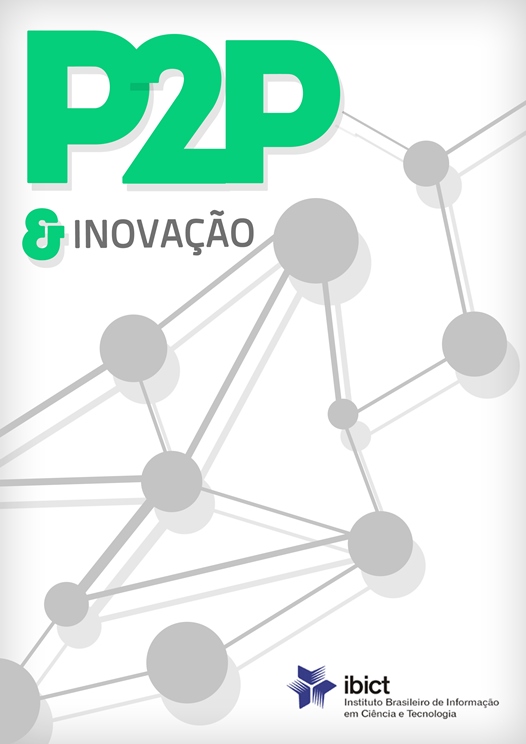“PEER PIRACY”: aspectos centrais da produção por pares e da pirataria e suas contribuições nas transições do capitalismo contemporâneo
DOI:
https://doi.org/10.21721/p2p.2014v1n1.p77-90Resumen
Resumo
Não há dúvidas de que a pirataria digital contemporânea é produzida coletivamente por “peers”, no entanto, o título deste artigo não diz respeito apenas às características da pirataria em si – embora elas devam ser retomadas em algum ponto. A escolha de “Peer Piracy” como título denota uma intenção de tratar dos atributos particulares dessas duas formas de apropriação cultural à luz da filosofia política, especialmente os trabalhos de Michel Foucault, Gilles Deleuze, Antonio Negri e Michael Hardt. Entendendo que essas são práticas opostas, ou pelo menos contraditórias entre si, do ponto de vista econômico/legal (e talvez ético), esse artigo não pretende juntá-las ou realizar um estudo sobre seu entrelaçamento histórico e político. Pelo contrário, busca-se apontar como essas práticas marcam uma fase de transição do capitalismo global, e, acredita-se, estariam contribuindo, em suas singularidades e oposições, para construção de uma nova constituição econômica, política, social e cultural do presente.
Abstract
Amidst the many political themes surrounding our contemporary age, one that draws more attention concerns the philosophical and legal discussion about property, especially (but not restricted to) intellectual property and copyright. Actually, it would be no exaggeration to say that the notion of private property as a whole is changing and that this transformations leads also to socio-economical, political and cultural consequences. In Digital Culture – one of the main poles of this scenario in dispute – the hacker and peer-to-peer (P2P) movements can be highlighted as two preponderant elements in the conceptual and quite physical taken of property. Nevertheless, it is necessary to inform that this paper does not intend to advocate in favor of this or that cause, but to show how this is a contemporary situation that must be an object of study in academia. In this sense, the Occupy movements, open software, collaborative economies and hacker groups (such as Anonymous) can be used as examples of the penetration of this thematic in our days. However, they must not be considered isolated cases of insurgency against the capitalist system and its means of production, but as manifestations of a structural change, a status quo modification, in the actual idea of property and its usage. Regarding hacker culture, the reference to our investigation will be a set of works commonly related with the so called cognitive capitalism and its respective influences, largely the French political philosophy. In the case of peer production, beyond the already mentioned bibliography, some authors such as Bauwens et al. were chosen in an attempt to establish a more integrative counterpoint to this cultural and consumption logics. Contemporary digital piracy is obviously peer-based yet the title of this short essay does not regard the characteristics of piracy in itself – although they will be addressed at some point. The choice for “peer piracy” as the title marks our intention to speak about the particular attributes of these two kinds of cultural appropriation. Understanding that these are opposed or at least contradictory practices in an economical/legal point of view, this paper intends not to mingle them together or study how they would be intertwined historically or politically. On the contrary, we seek to indicate how each one of them, in their own singularities, may be used to build a new economical, political and social constitution of the present. Thus, as a way to situate the debate inside this theoretical background, first it is necessary a short summary about what this essay understands for cognitive capitalism and how this conceptual operative fits in the socio-economical transitions of the last 30/40 years.
Descargas
Descargas
Publicado
Número
Sección
Licencia
A revista é publicada sob a licença Creative Commons - Atribuição - Uso Não Comercial - Partilha nos Mesmos Termos 4.0 Internacional.
O trabalho publicado é considerado colaboração e, portanto, o autor não receberá qualquer remuneração para tal, bem como nada lhe será cobrado em troca para a publicação.
Os textos são de responsabilidade de seus autores.
É permitida a reprodução total ou parcial dos textos da revista, desde que citada a fonte.















